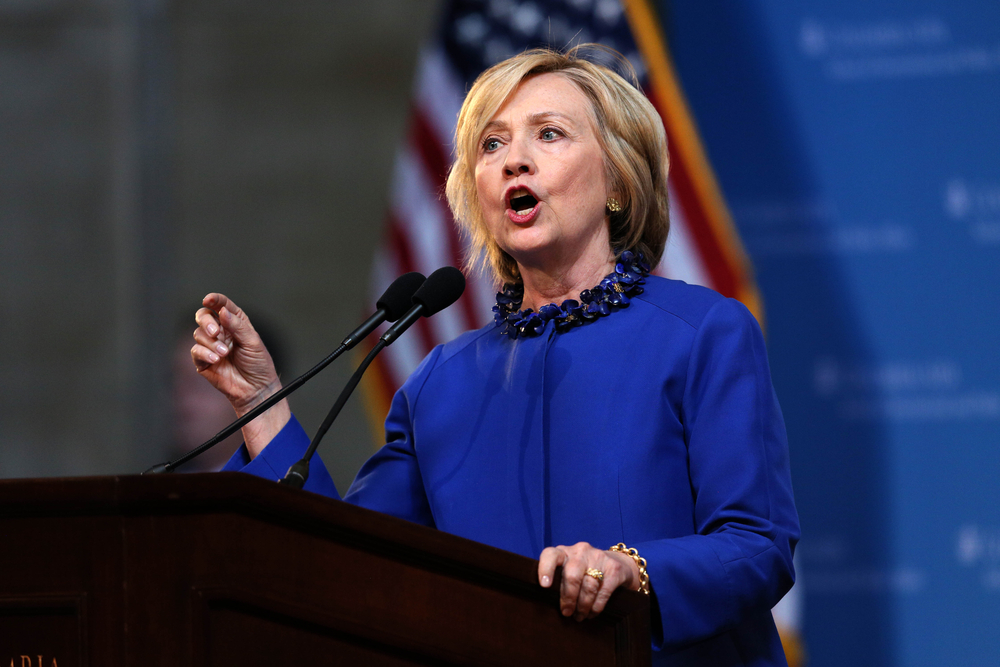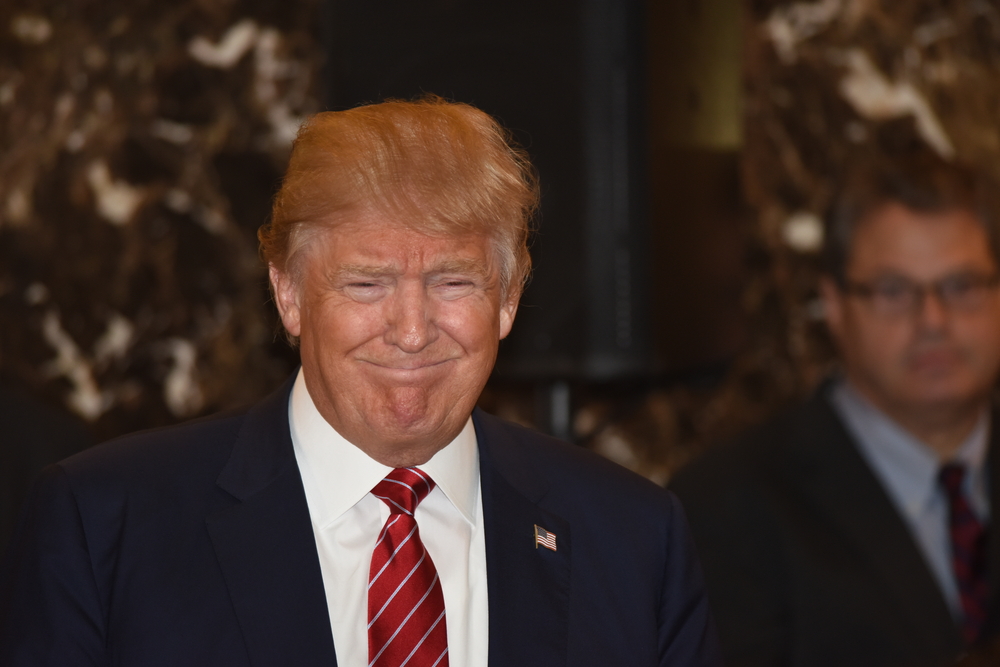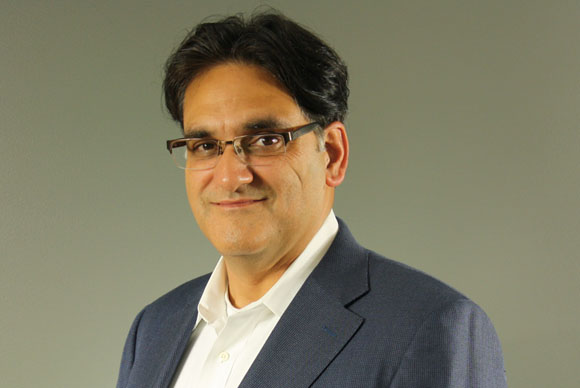
What If a Data Scientist Became President?

(andrea-izzotti/Shutterstock)
Tonight we’ll hear from the two main candidates applying to be the next president of the United States. The debate should give voters a clearer picture of how the next president will govern. But what we’re not likely to hear is how data science will power good decision-making once they’re in the White House.
The president of the United States is the most powerful person in world. As chief executive of the U.S. Government, the president sets and enforces policies that impact not only 300 million Americans and the United States’ $18-trillion economy, but the lives and prosperity of other people and countries around the world.
With so much on the line, one would think that the president would use every tool imaginable to help shoulder this hefty load. That includes the type of data analytics and advanced business intelligence tools that are used by the executive leadership of every major corporation. And yet, there’s no evidence that data science tools or techniques have ever been employed to help decision making in the White House.
It’s not that presidents haven’t used analytics. President Barack Obama’s campaign team put on veritable data science clinics during the last two elections, which has led the Republican Party to play catch-up in the analytics department. But once in the White House, there’s no evidence that Obama actually used data science to inform his decision making.
Anil Kaul, co-founder and CEO of Silicon Valley data science consultancy Absolutdata, has given some thought as to how the commander in chief could put data analytics to use.
“There is so much data and information already available, we should be utilizing it to make decisions which are good for the people, which are good for the country,” Kaul tells Datanami. “It would make the president a lot more effective and ensure that the benefits impact the largest number of people.”
It’s unlikely that the president would be a data scientist himself or herself. There’s way too much on his or her plate for that. Instead, the president could have a data scientist on his or her staff that would help analyze the available data and come up with the best policy decisions that can be supported by the evidence at hand.

Will Democratic presidential candidate Hillary Clinton rely on data science to inform her policies if elected? (Trevor-Collens/Shutterstock)
Kaul sees data science potentially informing the president at two levels, including what policies to pursue, and how much to invest in them.
“You’re using data science to be able to predict what would happen if you spent X amount of money in those areas and be able to estimate what improvements would come out of it,” Kaul says. “What you would find is once the data science is applied, the priority areas where the president focuses on would start changing. And how the president executes on those priorities would start changing as well.”
There’s a solid precedent for this sort of approach–in the C-suite of practically every major U.S. corporation. Imagine if a vice president of marketing asked the CEO for more money to pursue marketing activities. The CEO would be remiss if she didn’t ask the vice president to present evidence showing that increasing the marketing budget would lead to increased sales.
“So the marketing team does very thorough analysis using data science to show how every dollar they spent would eventually give you a better return–better sales, better brand recognition, etc.” says Kaul, a former McKinsey consultant who has a PhD in marketing from Cornell University. “We’ve done it for years in the corporate world.”
This same approach could be used to set public policy, such as around education, which has traditionally been under the control of the states, but which the Federal Government has exercised increased authority over in recent years.
“You can apply exactly the same models on the education side,” Kaul says. “Everybody says ‘We need more budget.’ But there is no data science or science or evidence that’s been collected to show that budget is the reason for [lower achievement]. But if you use data science, you’d be able to figure out is the problem the amount of money, or is it how the data is being spent, or distributed? Or is it the problem that after the distribution, how it’s being measured and what we’re getting out of it?”
Analyzing data to optimize outcomes may be table stakes in the corporate world, but there’s no evidence the president has ever used it to manage the $3.8-trillion organization known the Federal Government.

Republican presidential candidate Donald Trump reportedly has eschewed the sort of predictive analytics used in the the past two presidential campaigns (a-katz/Shutterstock)
If the White House took queues from corporate data science initiatives, it would look for a relatively simple problem to tackle first, demonstrate a good solution with a quick return, and then expand the data science investments to target more complex problems. Eventually, data science could even be informing the president’s foreign policy, perhaps through graph entity analytics.
Even though the U.S. is the sole remaining “superpower” in the world, taking unilateral action is a good way to offend other countries, says Kaul, who became a citizen of the U.S. after immigrating here 25 years ago. “Public opinion matters tremendously,” he says. “That is where data science comes in, in a big way, because it can help identify the levers that you can pull to sway public opinion to our side.”
If most major corporations have a social media analytics strategy to gauge and ultimately influence people’s thoughts about their brand, then why isn’t the president doing the same for the United States? “We can use the exact same tools and techniques to figure out how do people think about us in a particular country, how do we leverage what we’re doing to sway that opinion, and who are the influential leaders,” Kaul says.
“This is not anything different from what we typically do in any corporation, in any large organization, where you started out small, show a result, and then build up support across various groups and stakeholders in the organization, and over time the whole organization goes in that direction,” Kaul says. “Over time, as people start seeing the benefits of it, they will become supporters of this.”
Is it possible that President Obama has actually been using big data analytics the whole time? After all, the revelations of big data snooping by the National Security Agency came under his watch, in 2013. Did any of that widespread surveillance technology bubble up to the White House?
If it did, there’s no evidence of it. The NSA’s data-collection systems–some of which have been shut down—were ostensibly focused on national security and preventing terrorist attacks, not gauging and engaging public sentiment. In fact, the NSA revelations could have led President Obama to avoid any public connection between his administration and any big data programs, even ones designed to benefit the people. Similarly, the appointment of DJ Patil as the he Chief Data Scientist of the United States Office of Science and Technology Policy had more to do with advocating for open data, rather than actively building analytic systems to set public policy, Kaul says.

Absolutdata CEO Anul Kaul would like to see a data scientist in the White House
Is there room in the next president’s cabinet for a head data scientist or a chief analytics officer? It’s hard to say. Clearly the world is getting more complex, not less complex, making the job of the president as Chief Decision Maker increasingly difficult.
One would like to think that, in an enlightened world, U.S. citizens would embrace a president who took a data-driven, empirical approach to decision making. And what’s more, one would hope that he or she wouldn’t be afraid to publicly express confidence in using proven models to find the best outcome for a given set of circumstances. The way the current election is shaping up, that’s not likely to be the case for the next four years.
Related Items:
Big Data and the Race To Be President






























